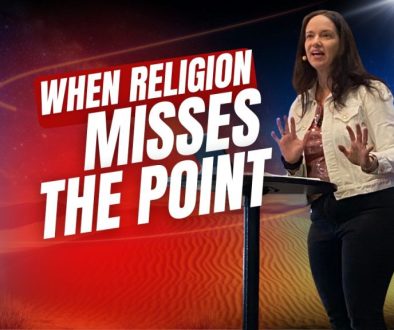Kingdom Encounter Part 2: Moving In
This morning’s message from Pastor Zoe was a powerful reminder of how we, as followers of Jesus, are called to bring God’s Kingdom to every place we go. As she shared, there are moments in our lives when the spiritual realm feels especially close to the physical realm—a “thin place,” as she called it. These are moments when we sense the presence of God in a tangible way, and Pastor Zoe challenged us to bring these “thin places” with us, wherever we go, as we embody the Kingdom of God.
In her sermon, she continued the series Kingdom Encounter, focusing on the theme of incarnation. She explained that, as believers, we are called to do more than just share the Gospel from a distance. Jesus, the ultimate example of God’s love and mission, didn’t remain in heaven but chose to put on flesh and dwell among us. He entered into our world, experiencing life as we do, and this is what it means to truly represent God. As Pastor Zoe put it, Jesus “moved into the neighborhood,” demonstrating that incarnation is about physically being present with those we are called to reach.
The Example of Jesus and John 1:14
In John 1:14, the Apostle John describes the moment when Jesus came to live among us:
“The Word became flesh and made his dwelling among us. We have seen his glory, the glory of the one and only Son, who came from the Father, full of grace and truth.” (John 1:14, NIV)
Pastor Zoe noted how the Message translation of this verse puts it even more vividly: “The Word became flesh and blood and moved into the neighborhood.” This is a beautiful picture of God’s love—it’s not distant, but deeply personal, with Jesus choosing to be with us in the fullness of our human experience.
A Missional Calling with a Heart of Incarnation
As followers of Jesus, we are called to be more than just missionaries—we are called to be incarnational. This means that our mission must be coupled with our willingness to move physically, emotionally, and spiritually into the places and communities we are called to serve. This was the example of Jesus, who didn’t stand at a distance or preach from a pulpit; He walked alongside people, experiencing their lives and meeting their needs.
Pastor Zoe explained that we are not meant to just gather and be content in our comfortable spaces. We are called to engage with the world, just as Jesus did, to make the Gospel accessible and real to those around us. She pointed out the importance of our posture as we carry out this mission, reminding us that it is not just about showing up, but how we show up.
Incarnational Mission in 1 Thessalonians 2:7-8
Pastor Zoe referenced the Apostle Paul’s words in 1 Thessalonians 2:7-8 to highlight the heart of incarnational ministry. Paul writes:
“We were gentle among you, like a mother caring for her little children. We loved you so much that we were delighted to share with you not only the gospel of God but our lives as well, because you had become so dear to us.” (1 Thessalonians 2:7-8, NIV)
In these verses, Paul shows that the mission is not just about delivering a message; it’s about sharing our lives with others. This is the heart of incarnational mission—being so connected to those we serve that we don’t just preach at them but live alongside them, sharing both the truth of the Gospel and our everyday experiences.
The Acts 3 Encounter: Ministry Along the Way
Pastor Zoe then turned to the story in Acts 3, where Peter and John, on their way to the temple, encounter a man who had been lame from birth. The man asked them for money, but Peter responded:
“Silver or gold I do not have, but what I do have I give you. In the name of Jesus Christ of Nazareth, walk.” (Acts 3:6, NIV)
Here, we see the heart of incarnational ministry. Peter and John didn’t have money, but they had something far more powerful—God’s healing power. They were not planning a grand outreach event that day, but they were willing to be interrupted and listen to the Holy Spirit’s promptings. They responded to the man’s needs in the way that Jesus would, meeting him where he was and offering him healing.
As Pastor Zoe pointed out, this is an example of “on the way ministry.” Peter and John were not just going to the temple to pray—they were on their way to something, and God used that moment to bring the Kingdom to a hurting man. Pastor Zoe reminded us that so often, God shows up in the midst of our everyday, ordinary lives, in the moments when we least expect it.
Living with Incarnation in Mind
Throughout the sermon, Pastor Zoe encouraged us to adopt an incarnational posture in everything we do. It’s not just about preaching from a distance or supporting causes from afar—it’s about showing up with a heart of love, humility, and service. We are sent to go and be with the people we are called to serve, and this requires intentionality and a willingness to be interrupted.
As she put it, we are called to move into the “neighborhoods” of our lives—physically and spiritually—and be present with those around us. Our mission is not just about sharing words; it’s about sharing lives.
In the next part of the sermon, Pastor Zoe will continue to explore how we can live out this incarnational mission in our own lives, following the example of Jesus and the early church.
Jesus’ Posture of Advocacy
Zoe begins by challenging the church to reconsider its posture toward those who are far from God. Instead of a posture of judgment, believers are called to adopt a posture of advocacy. She highlights how Jesus modeled this approach in His encounter with the woman caught in adultery.
Jesus Removes Shame and Offers Mercy
Zoe references John 8:1-11, where Jesus encounters a woman who had been caught in adultery. Instead of condemning her, Jesus removes the shame and judgment. By offering grace first, He allows her to approach Him with trust, without fear of rejection or condemnation. Only after He has won her heart does He challenge her to change her behavior:
“Go now and leave your life of sin.” (John 8:11, NIV)
This sequence demonstrates that love and compassion should precede calls for repentance and change, highlighting the importance of grace in the transformation process.
The Church’s Role: Love, Not Judgment
Zoe goes on to stress that the church’s role is not to judge but to reflect the love of Jesus. She emphasizes that judgment is God’s role, not ours, and that the church should represent Christ’s love to the world. While Jesus was often criticized for associating with sinners, He consistently extended mercy and compassion, without endorsing sinful behavior.
“For I desire mercy, not sacrifice, and the knowledge of God rather than burnt offerings.” (Hosea 6:6, NIV)
In the Message version, this verse is rendered as:
“I’m after love that lasts, not more religion. I want you to know me, not go to more prayer meetings.” (Hosea 6:6, The Message)
Zoe reflects on how God values mercy over ritual and personal relationship over religious formality, calling the church to embody these principles in their interactions with others.
Looking Beyond the Surface
Zoe challenges listeners to examine their judgments of others, especially those who may not share the same faith or values. She encourages the church to look past outward appearances and behaviors, urging believers to consider the deeper struggles people may be facing.
“Imagine the life they have come from… being buried in debt, mental illness, spiritual questions, caring for sick loved ones…” (Zoe’s paraphrase)
Instead of focusing on what others are wearing, who they’re with, or how they speak, Christians are called to pray for them and show kindness without expecting anything in return. By doing so, they embody the love and grace of Jesus.
A Call to Action: Adopt Whimsical Holiness
Zoe concludes her message by calling Christians to reflect on how their posture affects their relationships with others. She challenges listeners to think about whether they have judged or closed their hearts to anyone in their life, especially those who are distant from God. Zoe urges believers to practice “whimsical holiness”—a kind of holiness that upholds Christian values while fostering love and acceptance, without compromising on the truth.
This means loving others while not condoning their sin. Zoe encourages listeners to go to someone they’ve wronged or judged and offer an apology, embracing them with the same grace Jesus offers. This act of humility and mercy has the potential to turn adversaries into allies and bring them closer to the Kingdom of God.
Conclusion: Posture Matters
Zoe’s message calls the church to adopt a posture like Jesus’—one of love, grace, and advocacy rather than judgment. By reflecting Jesus’ love and mercy, Christians can create an environment where people feel welcomed and valued, allowing hearts to be won and lives to be transformed.




